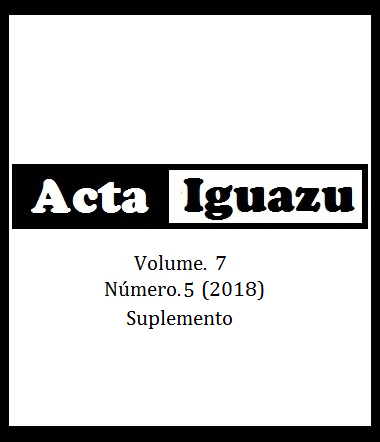Validation of leaf cover analysis software (LCAS) to monitor lettuce cultivated with organic fertiliser
DOI:
https://doi.org/10.48075/actaiguaz.v7i5.17309
Agencias de apoyo
Fundação Araucária
Palabras clave:
composting, Lactuca sativa L, solid wasteResumen
Composting and vermicomposting are techniques used to stabilise organic waste and produce nutrient-rich fertilisers. Experiments that analyse cultures and different fertilisers applied to soil require a heavy workload and time to monitor plant development. Thus, alternative methods to facilitate this monitoring need to be created. The aim of this paper was to assess the development of lettuce cultivated with eight types of fertilisers derived from composting and vermicomposting, and to compare the traditional data collection method with leaf cover analysis software (“LCAS”). The assessed items were growth, diameter, number of leaves, fresh mass, dry mass, and leaf cover obtained using the software. Overall, the lettuce cultivars that received organic fertiliser developed better than the witness, especially in relation to treatments containing ash, such as the C4 compost (Mud, Ash and Pruning litter) and V2 vermicompost (Mud, Ash and Coffee husk). LCAS proved to be an effective tool to monitor the growth of lettuce cultivars in comparison with the traditional method since statistically the pattern of behaviour of the treatments was similar for plant cover, diameter, length, and fresh and dry masses.Descargas
Publicado
05-02-2019
Cómo citar
MARQUES, V. da C.; SILVA, J. dos S.; PRESUMIDO, P. H.; DAL BOSCO, T. C.; MICHELS, R. N.; BERTOZZI, J. Validation of leaf cover analysis software (LCAS) to monitor lettuce cultivated with organic fertiliser. Acta Iguazu, [S. l.], v. 7, n. 5, p. 82–91, 2019. DOI: 10.48075/actaiguaz.v7i5.17309. Disponível em: https://saber.unioeste.br/index.php/actaiguazu/article/view/17309. Acesso em: 21 dic. 2025.
Número
Sección
ARTIGOS CIENTÍFICOS
Licencia
Aviso de Direito Autoral Creative Commons
Política para Periódicos de Acesso Livre
Autores que publicam nesta revista concordam com os seguintes termos:
1. Autores mantém os direitos autorais e concedem à revista o direito de primeira publicação, com o trabalho simultaneamente licenciado sob a Licença Creative Commons Attribution que permite o compartilhamento do trabalho com reconhecimento da autoria e publicação inicial nesta revista.2. Autores têm autorização para assumir contratos adicionais separadamente, para distribuição não-exclusiva da versão do trabalho publicada nesta revista (ex.: publicar em repositório institucional ou como capítulo de livro), com reconhecimento de autoria e publicação inicial nesta revista.
3. Autores têm permissão e são estimulados a publicar e distribuir seu trabalho online (ex.: em repositórios institucionais ou na sua página pessoal) a qualquer ponto antes ou durante o processo editorial, já que isso pode gerar alterações produtivas, bem como aumentar o impacto e a citação do trabalho publicado (Veja O Efeito do Acesso Livre).
Licença Creative Commons
Esta obra está licenciada com uma Licença Creative Commons Atribuição-NãoComercial-CompartilhaIgual 4.0 Internacional, o que permite compartilhar, copiar, distribuir, exibir, reproduzir, a totalidade ou partes desde que não tenha objetivo comercial e sejam citados os autores e a fonte.


